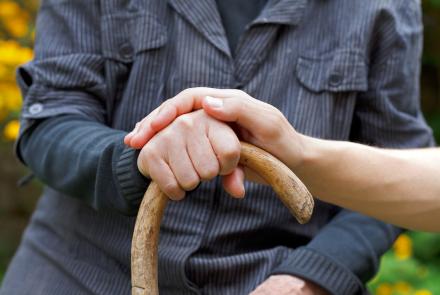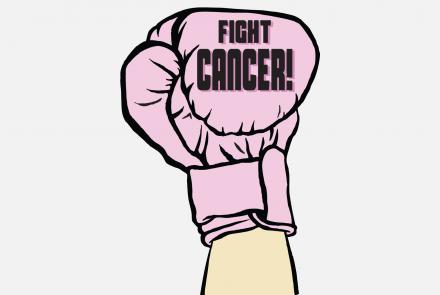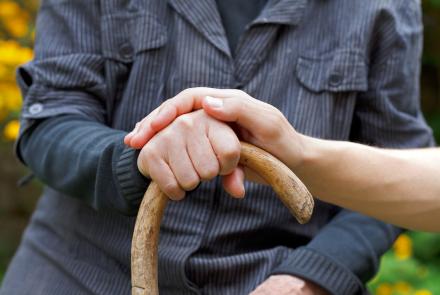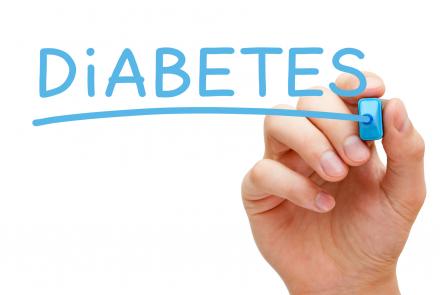Pictures taken by a little-known photographer between the 1930s and 1960s have found a new use helping to trigger memories and reminiscences among people with dementia.
"In the dementia care world reminiscence is up there as one of the leading groups of therapeutic approaches," explains Prof Bob Woods, an expert in the clinical psychology of older people at Bangor University.
"Essentially it's a good way of facilitating communication, and so it helps people to feel more socially integrated and…
- Cancer Institute chairperson Dr V Shanta expressed concern over underreporting of cancer among children, especially in rural areas. Advances in oncology over the past six decades have ensured that up to 75 % of all paediatric cancers can be cured. While it is possible to treat all pediatric cases in the country, there is a need to increase affordability and accessibility for the same," she said. http://timesofindia.indiatimes.com/City/Chennai/Parents-deny-girls-cancer-treatment-say-doctors…
- In a study that followed more than 2,200 obese women during pregnancy, scientists found that some simple interventions can help prevent high birth weights in newborns. This is important because previous studies have shown that infants with a high birth weight have a greater risk of becoming obese as children or adults. Professor Jodie Dodd summarizes the results: "Infants born to women who received lifestyle advice were 18% less likely to have a high birth weight compared to infants born to…
- A new University of Iowa study further supports an inescapable message: caregivers have a profound influence -- good or bad -- on the emotional state of individuals with Alzheimer's disease. Patients may not remember a recent visit by a loved one or having been neglected by staff at a nursing home, but those actions can have a lasting impact on how they feel. The findings of this study are published in the September 2014 issue of the journal Cognitive and Behavioral Neurology. "Our findings…
- What kind of end-of-life care do you want? Don’t leave the burden of such decisions on your loved ones. Make a living will, which will speak for you when you are unable to, says lawyer Lyn Boxall. About two years ago, I answered a phone call from my sister. She lives in my home town, Adelaide in South Australia, and I’ve lived in Singapore for many years. “Mum was found unconscious on the floor of her bathroom this morning and now nothing she’s saying is making any…
- Taking the drugs known as benzodiazepines, which include diazepam and lorazepam, for three months or more was linked with a greater chance of being diagnosed with Alzheimer's disease five years later. http://www.telegraph.co.uk/health/healthnews/11083674/Sleeping-pills-ta… For our community's tips on sleeping please check out http://www.patientsengage.com/?q=discussions/are-you-sleeping-well-what-works-you
- People who live in neighborhoods that are conducive to walking experienced a substantially lower rate of obesity, overweight and diabetes than those who lived in more auto-dependent neighborhoods, according to a pair of studies presented at the American Diabetes Association's 74th Scientific Sessions. http://www.diabetescare.net/article/title/neighborboods-that-encourage-walking-reduce-obesity-and-diabetes Those who read this, also read one of our contributor's journey as a diabetic for…
- Diabetes is making an increasingly important contribution to the TB epidemic and a 52% increase in diabetes prevalence recorded over the last 3 years in the 22 highest TB burden countries is thought to be responsible for a rise in diabetes-associated TB cases from 10% in 2010 to 15% in 2013,” says the Lancet study to be published in the medical journal this week. Read more here Diabetes has long been known to be a risk factor for active tuberculosis and reactivation of latent tuberculosis…
- Trees are saving more than 850 human lives a year and preventing 670,000 incidences of acute respiratory symptoms. http://www.sciencedaily.com/releases/2014/07/140725163557.htm A previous 2008 study showed that children who live in tree-lined streets have lower rates of asthma, suggests new research. http://www.sciencedaily.com/releases/2008/04/080430201651.htm















